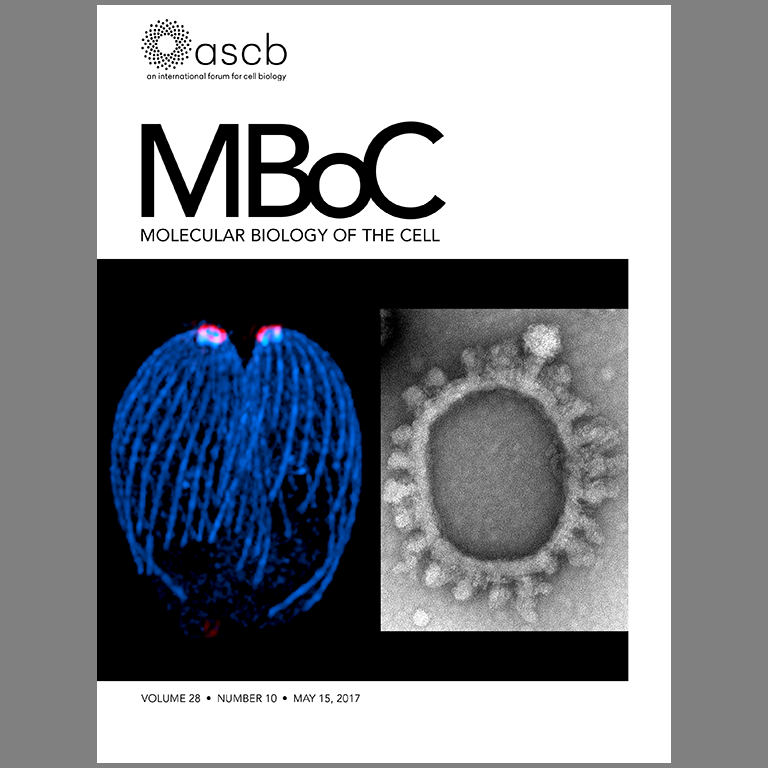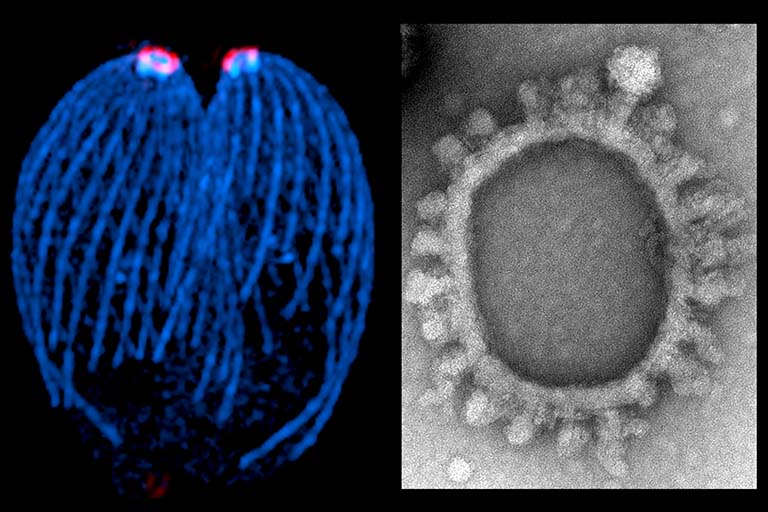The paper "Stability and function of a putative microtubule-organizing center in the human parasite Toxoplasma gondii" authored by members of Associate Professor Ke Hu's lab and colleagues was selected for the cover of the May 15, 2017, issue of Molecular Biology of the Cell.
Leung, et al. characterize two novel components of the apical polar ring in T. gondii and investigate the consequences of destabilizing the apical polar ring, including defects in microtubule attachment to this structure and in parasite-driven invasion, motility, and secretory processes important for the parasite lytic cycle.
Hu lab members participating in the study were Jacqueline Leung (postdoc), Yudou "Phoebe" He (undergraduate researcher), Jun Liu (assistant scientist), John Murray (senior scientist), and Ke Hu (PI, associate professor of biology).


 The College of Arts
The College of Arts